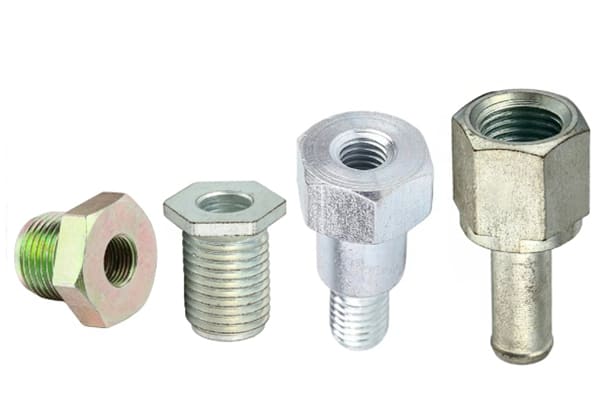Hollow Bolts: A Deeper Look
Hollow bolts, unlike their solid counterparts, have a void or cavity running through their center. This design choice, while seemingly counterintuitive, offers several advantages in specific applications. This article will delve into the reasons behind hollow bolt designs and explore their common uses.
Weight Reduction
One of the primary reasons for using hollow bolts is to reduce weight. In applications where weight is a critical factor, such as aerospace, automotive, and marine industries, hollow bolts can significantly lighten the load without compromising strength. This weight reduction can improve fuel efficiency, handling, and overall performance.
Cost Reduction
Hollow bolts can also be more cost-effective than solid bolts, especially when made from high-strength materials. The hollow design allows for the use of thinner wall sections, reducing the amount of material required. This can lead to lower production costs and potentially lower prices for consumers.
Fluid Flow
In certain applications, hollow bolts can be used to facilitate fluid flow. For example, in hydraulic systems, hollow bolts can be used to connect pipes or hoses without the need for additional fittings. This can simplify the system design and reduce the risk of leaks.
Electrical Wiring
Hollow bolts can also be used to conceal electrical wiring. By drilling a hole through the bolt and passing the wire through it, the wiring can be routed through the structure without being exposed. This can improve the aesthetics of a project and reduce the risk of electrical hazards.
Other Uses
Hollow bolts have various other applications, including:
- Locking mechanisms: Some hollow bolts are designed with locking mechanisms that prevent them from being easily removed.
- Decorative purposes: In certain applications, hollow bolts can be used for decorative purposes, such as in architectural details or furniture.
- Structural reinforcement: In some cases, hollow bolts can be used to reinforce structures by providing additional support.
Types of Hollow Bolts
There are several types of hollow bolts, each with its unique characteristics:
- Hollow set screws: These are similar to standard set screws but have a hollow center. They are often used to secure components in place.
- Hollow carriage bolts: Carriage bolts have a rounded head and a square shank. Hollow carriage bolts are used in applications where the head needs to be flush with the surface.
- Hollow anchor bolts: These are designed to be anchored into a substrate. Hollow anchor bolts can be used to secure heavy objects or structures.
Considerations for Using Hollow Bolts
When considering the use of hollow bolts, it is essential to carefully evaluate the specific requirements of the application. Factors such as the required strength, weight limitations, and desired functionality should be taken into account. It is also important to ensure that the hollow bolt is compatible with the chosen fastening method and any additional components.
In conclusion, hollow bolts offer a versatile and efficient solution for a variety of applications. Their ability to reduce weight, cost, and complexity makes them a valuable option in industries where these factors are critical. By understanding the benefits and considerations associated with hollow bolts, engineers and designers can make informed decisions about their use in their projects.
Post time: 9 月-29-2024















